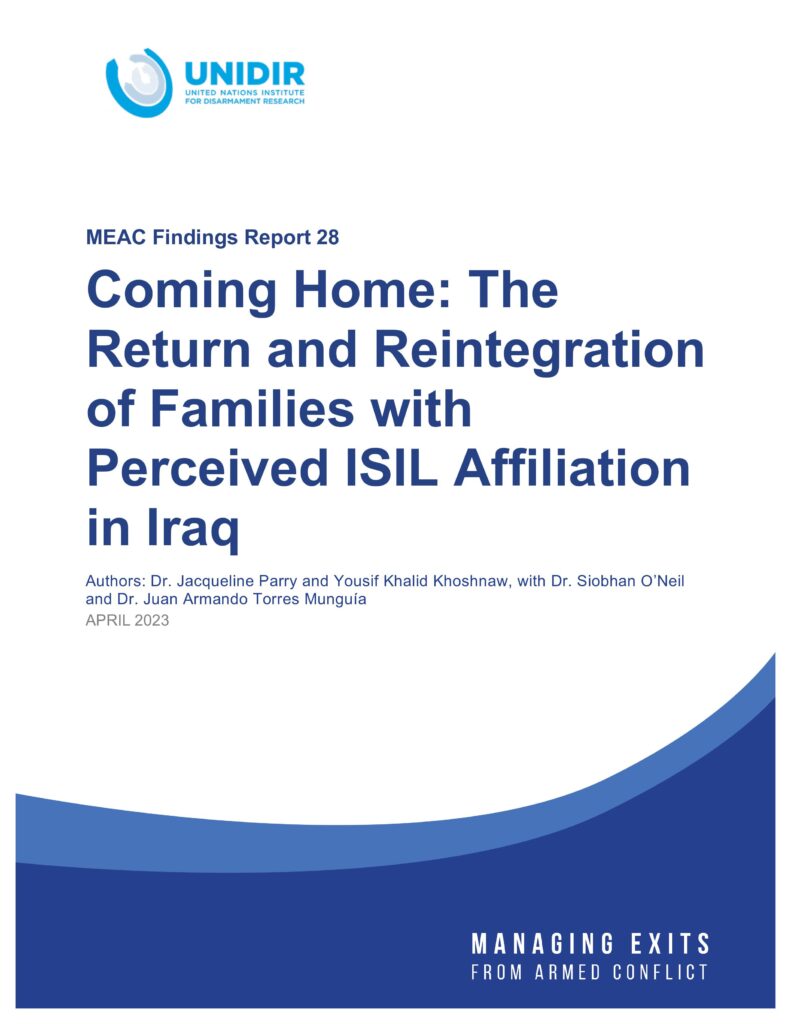This report is based on data collected from June to July 2022 from a total of 1,882 respondents collected in four key locations, each of which was occupied by ISIL: Al Qaim (Anbar governorate), Habaniyya (Anbar governorate), Tooz (Salah al-Din governorate), and Muhalabiya (Nineveh governorate). The sample was divided into two roughly equal halves: those who had benefited from UNDP support (810 persons or 43 per cent) and a randomized household sample from the same areas (1,072 persons or 57 per cent). In addition, qualitative interviews were carried out in the same four locations between July and November 2022 with key stakeholders (local authorities, tribal leaders, mukhtars) as well as 60 survey respondents to explore the survey findings in greater depth.
The four locations were chosen because they are the sites of community-based reconciliation and reintegration programming delivered by UNDP Iraq. Amongst other objectives, the programmes seek to support the return and reintegration of families perceived as having ISIL affiliation and to support the communities that receive them. The report ends with an examination of key policy and programmatic implications of these findings. The report presents data about community experiences pre-, during, and post-war, and examines what community experiences, perceptions, and preferences mean for reintegration prospects for those families perceived as having ISIL affiliation. This data may be useful to UN and NGO partners working in the region to bolster their early recovery programming, as well as efforts to support reintegration, community reconciliation, and broader peacebuilding efforts. The report ends with an examination of key policy and programmatic implications of these findings.
Citation: Jacqueline Parry and Yousif Khalid Khoshnaw, with Siobhan O’Neil and Juan Armando Torres Munguía (2023) "Coming Home: The Return and Reintegration of Families with Perceived ISIL Affiliation in Iraq”, UNIDIR, Geneva, https://doi.org/10.37559/MEAC/23/02
